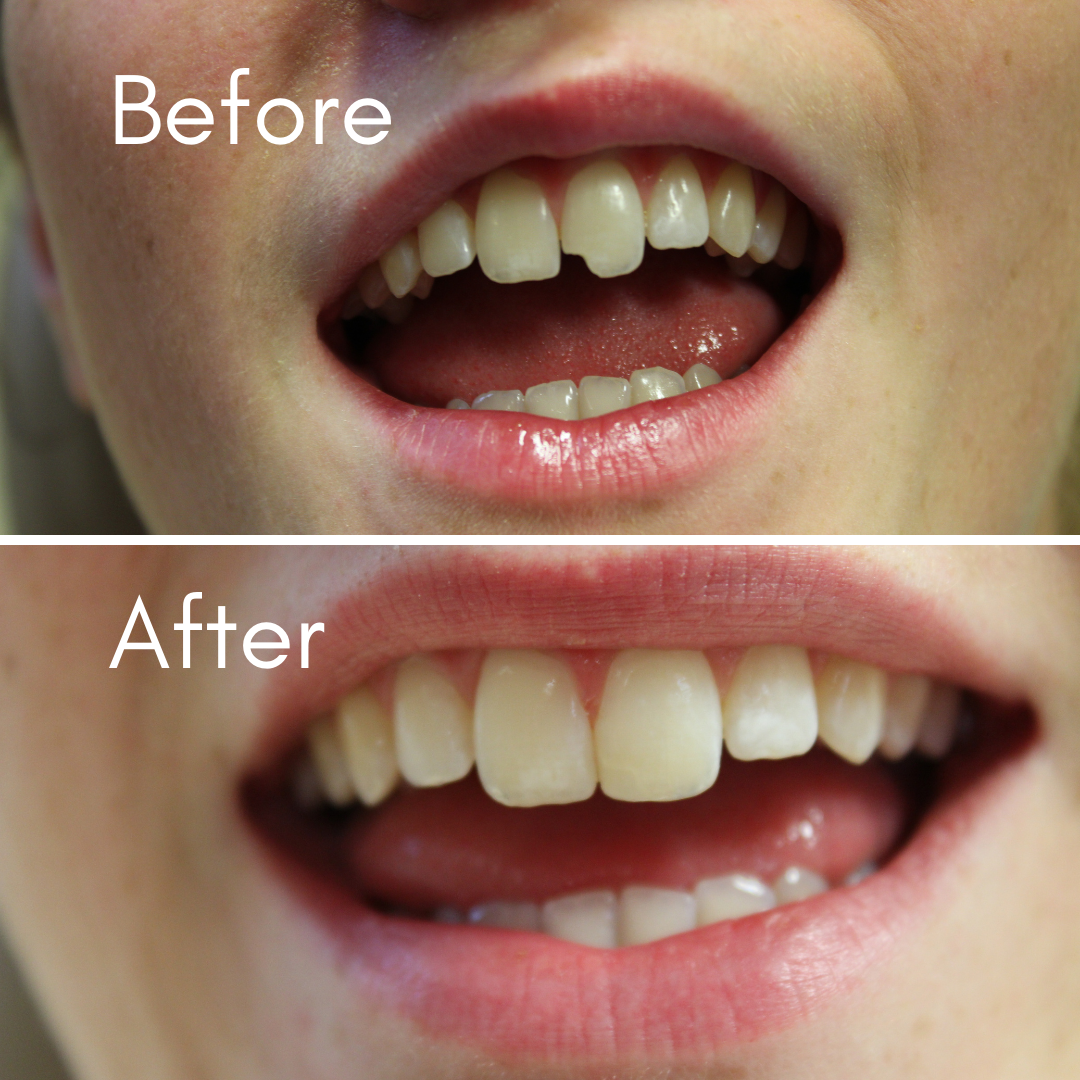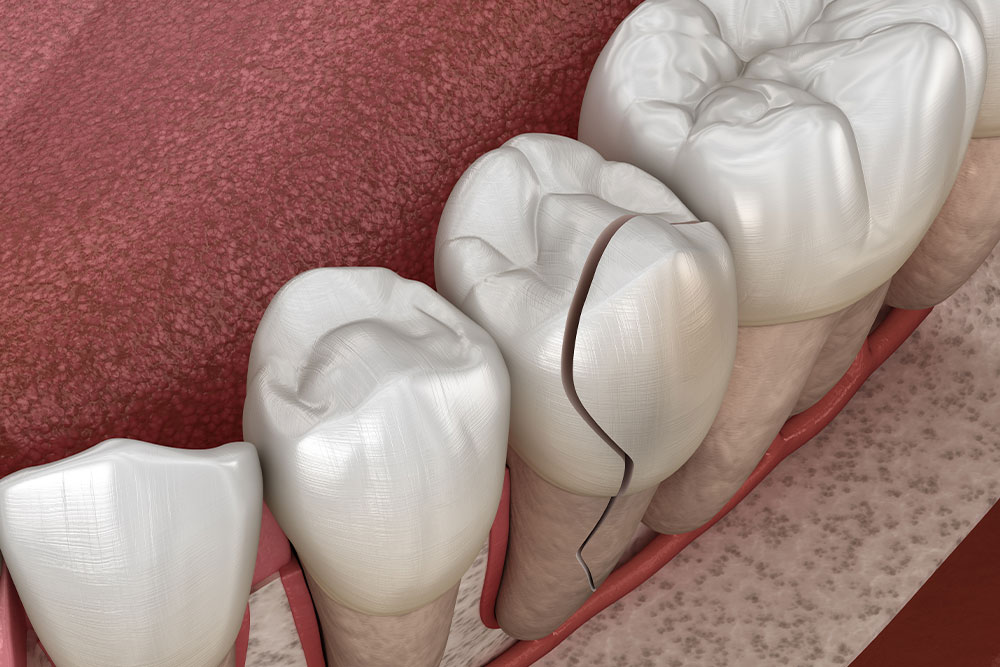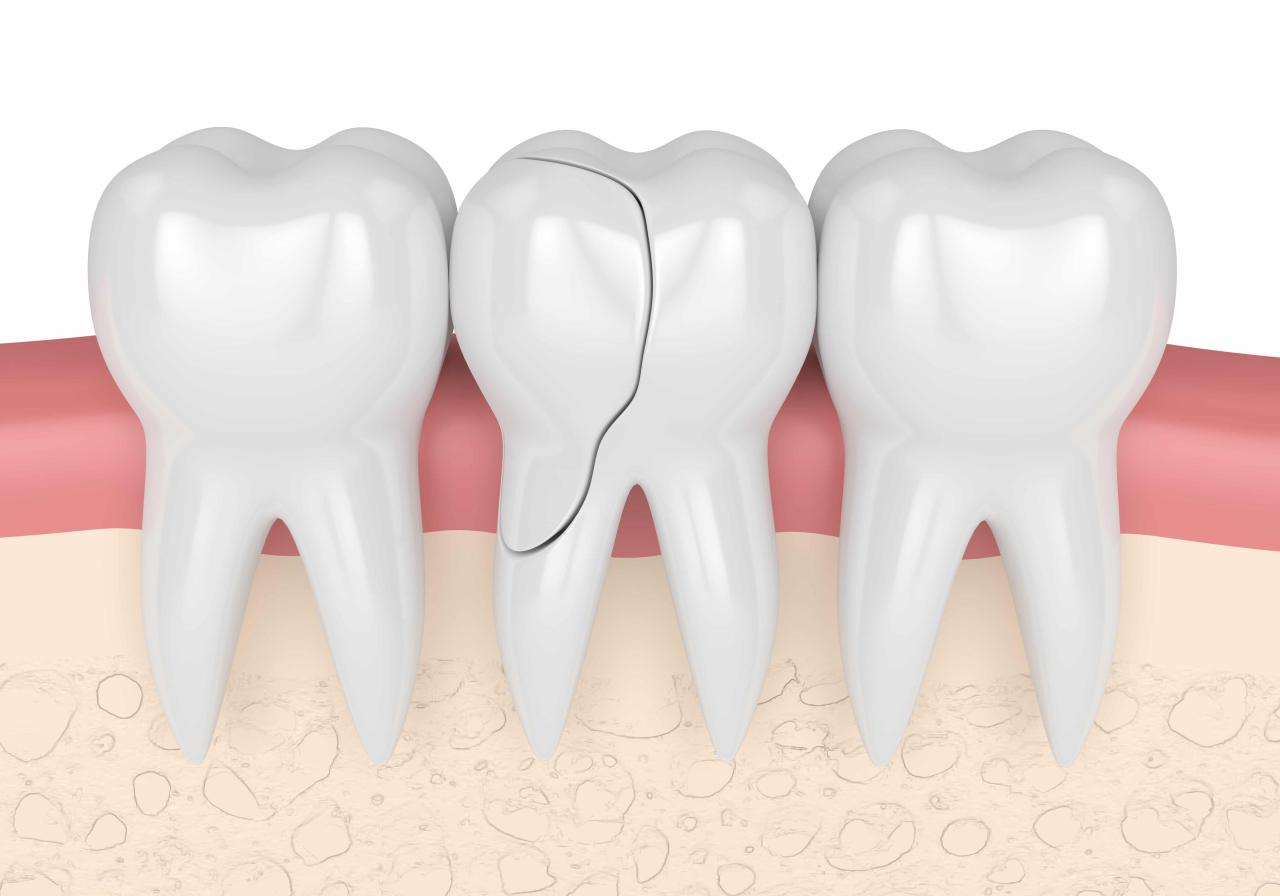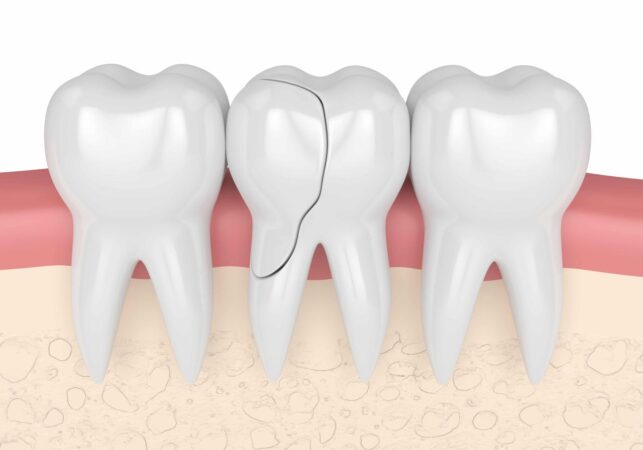
How to fix a cracked tooth naturally? It’s a question many ask when facing this painful dental dilemma. A cracked tooth can be a real nuisance, causing discomfort and potentially leading to further complications. While professional dental care is often necessary, there are natural remedies that can provide temporary relief and support the healing process.
Understanding the different types of cracks, their causes, and potential complications is crucial. From there, we can explore home remedies for pain relief, natural approaches to promote healing, and preventive measures to avoid further damage.
Understanding Cracked Teeth
A cracked tooth is a common dental problem that can occur due to various factors, ranging from biting down on hard objects to teeth grinding. Cracked teeth can cause significant pain and discomfort, and if left untreated, can lead to more serious complications. Understanding the different types of cracked teeth, their causes, and symptoms is crucial for timely diagnosis and treatment.
Types of Cracked Teeth
Cracked teeth can be classified into different types based on the extent and location of the crack:
- Craze Lines: These are very fine cracks that extend only into the enamel, the outermost layer of the tooth. They are usually harmless and do not cause any pain.
- Fractured Cusp: This type of crack involves a small chip or fracture in the chewing surface of the tooth. It can be painful when biting down.
- Cracked Tooth: This refers to a crack that extends from the chewing surface down into the dentin, the layer beneath the enamel. It can be painful when biting down, especially on cold or hot foods.
- Split Tooth: This is a more severe type of crack that extends completely through the tooth, often resulting in two separate pieces. It can cause significant pain and may require extraction.
Causes of Cracked Teeth
Several factors can contribute to the development of a cracked tooth, including:
- Biting down on hard objects: Eating hard foods like nuts, ice, or candy can put excessive stress on teeth, leading to cracks.
- Teeth grinding (bruxism): Grinding your teeth, especially during sleep, can put significant pressure on your teeth, causing cracks.
- Dental trauma: A blow to the face or a fall can cause a cracked tooth.
- Large fillings: Large fillings can weaken teeth and make them more susceptible to cracking.
- Tooth decay: Untreated cavities can weaken teeth and make them more prone to cracking.
Symptoms of a Cracked Tooth
The symptoms of a cracked tooth can vary depending on the severity of the crack. Some common symptoms include:
- Pain when biting down: This is the most common symptom of a cracked tooth, especially when biting on hard foods.
- Sensitivity to cold or hot foods: A cracked tooth can expose the dentin, which is sensitive to temperature changes.
- Sharp pain: A sharp pain that radiates to the ear or jaw can indicate a more severe crack.
- Swelling: Swelling around the tooth can indicate an infection.
- Visible crack: In some cases, the crack may be visible to the naked eye.
Complications of an Untreated Cracked Tooth
If left untreated, a cracked tooth can lead to several complications, including:
- Tooth infection: Bacteria can enter the crack and infect the pulp, the soft tissue inside the tooth.
- Tooth loss: A severely cracked tooth may need to be extracted.
- Pain and discomfort: A cracked tooth can cause significant pain and discomfort, making it difficult to eat and speak.
Home Remedies for Cracked Tooth Pain Relief: How To Fix A Cracked Tooth Naturally

While a cracked tooth requires professional dental care, there are home remedies that can provide temporary relief from the pain. These remedies aim to reduce inflammation, numb the area, and prevent further damage.
Cold Compresses
Applying a cold compress to the affected area can help reduce inflammation and numb the pain. Wrap an ice pack or a bag of frozen vegetables in a thin towel and apply it to the cheek near the cracked tooth for 15-20 minutes at a time, several times a day. This constricts blood vessels, reducing swelling and pain.
Clove Oil, How to fix a cracked tooth naturally
Clove oil contains eugenol, a natural anesthetic that can provide temporary pain relief. Soak a cotton ball in clove oil and apply it directly to the cracked tooth. However, be careful not to swallow the oil, as it can be toxic.
Over-the-Counter Pain Relievers
Over-the-counter pain relievers, such as ibuprofen or acetaminophen, can help reduce pain and inflammation. However, these medications should be used according to the manufacturer’s instructions and should not be used as a substitute for professional dental care.
Soft-Bristled Toothbrush
Using a soft-bristled toothbrush can help prevent further damage to the cracked tooth. Hard-bristled toothbrushes can irritate the area and worsen the pain. Brush gently and avoid brushing directly on the cracked tooth.
Avoiding Hard Foods
Hard foods can exacerbate the pain and damage the cracked tooth further. It’s important to avoid chewing on the affected side and stick to soft foods until you see a dentist.
Natural Approaches to Promote Tooth Healing

While natural remedies cannot fully repair a cracked tooth, they can help alleviate pain, reduce inflammation, and support the body’s natural healing process.
Dietary Approaches to Promote Tooth Healing
A healthy diet plays a crucial role in maintaining strong teeth and promoting healing. Consuming foods rich in calcium, vitamin D, and other essential nutrients can contribute to the repair process.
- Calcium is a fundamental building block for teeth, and its deficiency can weaken tooth enamel, making them more susceptible to cracks. Foods rich in calcium include dairy products (milk, yogurt, cheese), leafy green vegetables (kale, spinach), almonds, and fortified plant-based milk alternatives.
- Vitamin D aids in calcium absorption, ensuring its effective utilization for tooth development and repair. Good sources of vitamin D include fatty fish (salmon, tuna, mackerel), eggs, fortified milk, and exposure to sunlight.
- Other Essential Nutrients: A balanced diet should also include foods rich in phosphorus, magnesium, and zinc, which contribute to healthy tooth structure and overall oral health. These nutrients can be found in a variety of foods, including whole grains, legumes, nuts, seeds, and lean meats.
Natural Remedies for Tooth Repair
Although natural remedies cannot completely heal a cracked tooth, they can offer pain relief and support the body’s healing mechanisms.
- Aloe Vera Gel: Known for its anti-inflammatory and antibacterial properties, aloe vera gel can be applied directly to the affected area to soothe pain and reduce inflammation.
- Turmeric Paste: Turmeric contains curcumin, a potent anti-inflammatory compound that can help reduce pain and swelling associated with a cracked tooth. A paste made from turmeric powder and water can be applied to the affected area.
- Clove Oil: Clove oil has natural analgesic and antiseptic properties. Applying a drop of clove oil to the cracked tooth can provide temporary pain relief.
Maintaining Good Oral Hygiene
Maintaining good oral hygiene practices is crucial for preventing further damage to a cracked tooth and promoting healing.
- Brushing and Flossing Regularly: Brushing your teeth twice a day with fluoride toothpaste and flossing once a day helps remove food particles, plaque, and bacteria that can contribute to infection and further damage.
- Avoid Hard Foods: Chewing on hard foods can exacerbate the crack and cause further pain. Opt for soft foods that are easier to chew until the tooth heals.
- Use a Soft-Bristled Toothbrush: A soft-bristled toothbrush is gentler on teeth and gums, reducing the risk of further damage.
- Avoid Grinding Teeth: Teeth grinding (bruxism) can put additional stress on a cracked tooth. If you have bruxism, consider using a mouthguard at night to protect your teeth.
When to Seek Professional Dental Care

While natural remedies can provide temporary relief for cracked tooth pain, it’s crucial to understand that a cracked tooth is a serious dental issue that requires professional attention. Ignoring a cracked tooth can lead to further damage, infection, and even tooth loss.
Signs of a Cracked Tooth Requiring Immediate Dental Care
A cracked tooth is a complex dental problem that often requires the expertise of a dentist to diagnose and treat effectively. While home remedies may provide temporary relief, certain signs indicate that a cracked tooth needs immediate professional attention.
- Severe pain, especially when biting or chewing: This is a strong indicator that the crack has reached the inner layers of the tooth, exposing the sensitive dentin or even the pulp.
- Sharp, shooting pain: This pain can radiate to other parts of the face and may be triggered by hot or cold foods and drinks.
- Swelling around the tooth: This is a sign of infection and requires immediate medical attention.
- Visible crack or chip: While a small crack may not be painful initially, it’s essential to seek professional evaluation as it can worsen over time.
- Sensitivity to touch: Even a slight touch on the cracked tooth can cause pain, indicating a compromised tooth structure.
Dental Procedures for Treating Cracked Teeth
Dentists employ various procedures to treat cracked teeth, depending on the severity and location of the crack.
- Fillings: For minor cracks, a dentist can use a filling material to seal the crack and prevent further damage.
- Crowns: For more extensive cracks, a crown is a cap that covers the entire tooth, protecting it from further damage and restoring its function.
- Root canals: When the crack reaches the pulp, a root canal is necessary to remove the infected pulp and prevent further infection. The tooth is then sealed and filled to preserve its function.
Post-Treatment Care
Following the dentist’s instructions for post-treatment care is crucial for ensuring the success of the procedure and preventing further complications.
- Avoid biting on the treated tooth: This allows the tooth to heal properly and prevents further damage.
- Maintain good oral hygiene: Brushing and flossing regularly helps prevent infection and promotes healing.
- Use a soft-bristled toothbrush: This reduces the risk of irritating the treated area.
- Avoid chewing hard or sticky foods: These foods can put stress on the treated tooth and compromise its stability.
- Follow any prescribed medication: This ensures the tooth heals properly and prevents infection.
Preventive Measures for Cracked Teeth
Cracked teeth, while often caused by trauma, can also be a result of habits and factors that weaken tooth enamel. By implementing preventative measures, you can significantly reduce the risk of developing cracked teeth and maintain a healthy smile.
Avoiding Habits That Can Cause Cracks
The following habits can put excessive stress on your teeth, leading to cracks:
- Biting Hard Objects: Avoid using your teeth as tools for opening packages, chewing on ice, or biting into hard candy. These actions can exert significant force on your teeth, leading to fractures.
- Clenching or Grinding: Bruxism, the involuntary clenching or grinding of teeth, can put immense pressure on your teeth, especially during sleep. This habit can wear down enamel and create cracks over time.
- Using Teeth as a Bottle Opener: Resist the temptation to use your teeth as a bottle opener. This habit is a common cause of cracked teeth and can even lead to chipped enamel.
Importance of Regular Dental Checkups
Regular dental checkups play a crucial role in preventing cracked teeth. During these appointments, your dentist can:
- Identify Early Signs of Cracks: Dentists are trained to detect subtle cracks in your teeth that may not be visible to the naked eye. Early detection allows for timely intervention and prevents further damage.
- Monitor Bruxism: Your dentist can assess your risk of bruxism and recommend appropriate treatment, such as a mouthguard, to protect your teeth from excessive grinding.
- Provide Oral Hygiene Guidance: Dentists can offer personalized advice on proper brushing and flossing techniques, which are essential for maintaining strong enamel and preventing cracks.
The Role of Fluoride
Fluoride is a mineral that strengthens tooth enamel and makes it more resistant to decay and cracks. Here’s how it works:
- Increases Enamel Hardness: Fluoride incorporates itself into the enamel structure, making it harder and more resistant to wear and tear. This helps prevent cracks from forming.
- Repairs Early Enamel Damage: Fluoride can help repair minor enamel defects, such as microscopic cracks, before they become larger and more problematic.
- Promotes Tooth Remineralization: Fluoride helps restore lost minerals in enamel, strengthening it and making it less susceptible to cracks.
Final Review
While natural remedies can offer temporary relief and support healing, it’s essential to remember that a cracked tooth requires professional attention. A dentist can diagnose the severity of the crack, recommend the appropriate treatment, and ensure your oral health is protected. By combining natural approaches with professional care, you can effectively manage a cracked tooth and maintain a healthy smile.
Expert Answers
Can a cracked tooth heal on its own?
Unfortunately, a cracked tooth won’t heal on its own. The crack can worsen over time, leading to pain, infection, and potential tooth loss. It’s essential to seek professional dental care.
What are the signs of a cracked tooth?
Symptoms of a cracked tooth include pain when chewing, sensitivity to cold or hot foods, and pain when biting down. You may also experience pain that radiates to your ear or jaw.
How long does it take for a cracked tooth to heal?
Healing time for a cracked tooth depends on the severity of the crack and the chosen treatment. Minor cracks might heal within a few weeks, while more severe cracks may require more extensive procedures and longer healing periods.





